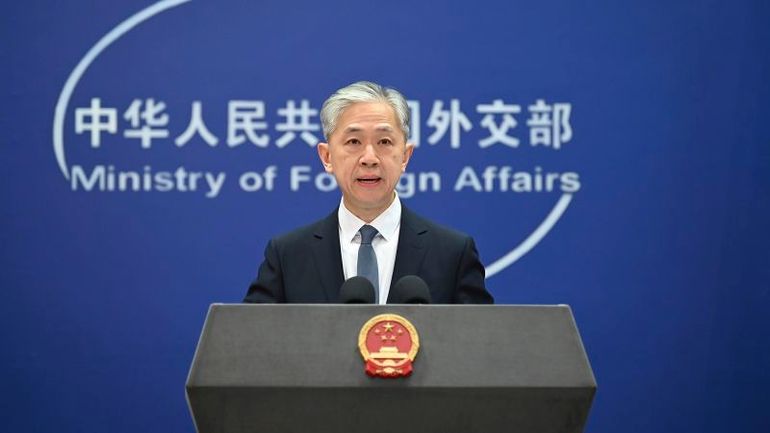
China's Response to Biden's Tariffs: Commitment to Protecting Rights

Amid Biden's announcement of significant tariffs on imports, China pledges to take 'all necessary actions' to safeguard its interests and rights, emphasizing the importance of protecting its economy and trade relations with the US.
Beijing has stated that it will do whatever is needed to safeguard its rights following US President Joe Biden's declaration of significant tariffs on imports of electric vehicles and other items from China.
Chinese foreign ministry spokesperson Wang Wenbin emphasized China's opposition to the imposition of tariffs unilaterally, stating that they violate World Trade Organization rules. He also mentioned that China will take all necessary actions to protect its legitimate rights. This statement was made during a regular press briefing with reporters just before the White House announcement.
The increase in US tariffs will also affect a variety of other imports in addition to Chinese EVs. This includes steel, aluminum, legacy semiconductors, battery components, critical minerals, solar cells, cranes, and medical products.
Furthermore, the tariffs on EVs imported from China will be raised significantly from 27.5% to 100%. This decision is aimed at addressing Beijing's strategy of promoting artificially low pricing by local EV manufacturers, while imposing a 40% tariff on imports of cars from the US.
The new tariff for solar components will be 50%, while the rest of the targeted imports will have tariffs of 25%. These changes will be rolled out over the next two years.
China has seen a significant increase in its global trade surplus in goods in recent years, reaching close to $1 trillion. This has led to growing tensions with both the United States and Europe.
The Biden administration and European Union officials are concerned that Beijing may be dealing with an overcapacity issue in its slowing economy by flooding global markets with excess products. Leaders from the Group of Seven developed economies will address this issue at an upcoming summit.
During the briefing, Wang also mentioned that China's growth in the new energy sector, such as electric vehicles, lithium batteries, and solar products, is driven by ongoing technical advancements, well-established industrial and supply chains, and intense market competition.
“Our leading edge is a result of comparative advantage and the rule of markets combined, not (of) subsidies,” Wang said.
This is a developing story and will be updated.
Editor's P/S:
The escalating trade tensions between the US and China over electric vehicles and other goods highlight the complexities of global trade dynamics. The US's imposition of significant tariffs on Chinese imports is met with China's resolute stance to safeguard its rights, underscoring the potential for further economic conflict. The underlying concerns about China's trade surplus and the impact of its industrial policies on global markets add further fuel to the fire.
It is crucial to recognize that trade policies should not only aim to protect domestic industries but also foster innovation and fair competition. Striking a balance between safeguarding national interests and promoting a level playing field is essential. The upcoming G7 summit presents an opportunity for dialogue and collaboration among developed economies to address these challenges and work towards a more equitable and sustainable global trade system.







